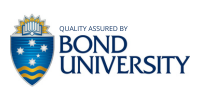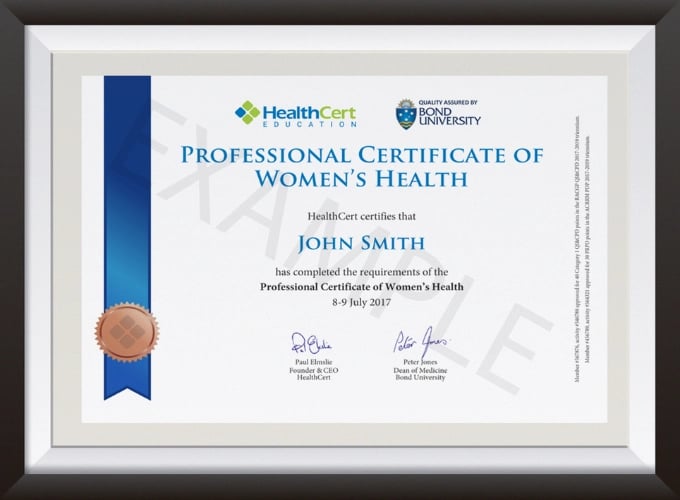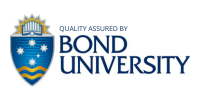Excision is routine work in primary care, but deciding who should wield the scalpel isn’t always...
.jpg?height=200&name=HCE%20HubSpot%20blog%20images%20600x350%20(22).jpg)
Gain a comprehensive understanding of women’s health issues commonly seen in primary care.

Delivered by leading experts in the field, this course will enable you to provide high-demand women's health services and better meet the needs of your female patients.
- This course is perfect for practitioners with no to little training in this area.
- Explore medical conditions and concerns pertinent to female patients such as family planning, breastfeeding, menopause, pregnancy, and more.
- This course is for physicians, nurse practitioners, and degree-qualified nurses.
- CPD-accredited and university-assured.
New to Women’s Health or not ready to commit to the full certificate?
Start with the Primary Certificate of Menopause & Women's Health: a focused, three-module course covering menopause, post-menopause, and hormonal health ($495).
You might also be interested in the Advanced Workshop of Intrauterine Systems.
Fulfils 50 hrs for medical professionals in Australia*
100% online
$1595
Special rates available
81 hrs
Self-paced
*provided an outcome measurement activity with a minimum of 5 hours is completed.

- Upskill in cervical screening to improve patient care.
- Diagnose and manage Polycystic Ovarian Syndrome.
- Assist your female patients with pregnancy-related issues, family planning, breastfeeding, and more.
- Offer expert advice for patients struggling with menstrual irregularities and menopause symptoms.
Get unlimited access to all course content, additional learning materials, ongoing post-course support, and more.
This module is separated into two units: Sexually transmitted infections (STIs) and cervical screening.
Unit one identifies several STIs and other conditions associated with sexual activity. It outlines common features and symptoms, routes of transmission, key risk factors for infection and the prevalence of infection. The unit emphasises the importance of early recognition, diagnosis, and treatment of STIs and details the natural progression of each condition if left untreated. Comprehensive information is provided about screening tools and procedures, examinations and testing, and detailed treatment plans. Information is included on contact tracing, notification of proper authorities and opportunistic counselling of patients about prevention of STIs.
Unit two begins with an explanation of the anatomy and functions of the cervix and identifies underlying causes and risk factors for cervical health issues including HPV, cervical dysplasia and cervical cancer. Indications for further investigation including presenting symptoms, risk factors, and potential impacts are covered. Information about current screening tests and ethical considerations related to patient experience and consent are addressed. Important updates in administrative processes, terminology for reporting and models for cervical screening results are explained. The module recognises the inherent limitations of these tests and emphasises their role as one part of the diagnostic process.
This module on polycystic ovarian syndrome (PCOS) examines the prevalence, presenting symptoms, contributing factors and underlying problems associated with PCOS. Common features, risk factors and indications for further investigation to diagnose this condition are outlined. A framework for applying diagnostic criteria including presenting symptoms, specific criteria for diagnosis, and the process for eliminating other potential causes and conditions is provided. Tools and resources for screening and management of the condition are included. The module concludes by outlining symptoms of complications to look for and provides instructions for detection and management of these symptoms.
This module on pregnancy (part 1) includes guidelines to optimise maternal and foetal health throughout the stages of an uncomplicated pregnancy and creates a detailed model for screening and counseling. The three stages of pregnancy care: preconception care, antenatal care and postnatal care are outlined including considerations and procedures for screening and monitoring individual cases. A typical regimen for screening and indications for monitoring and further investigation is included. The module identifies common symptoms and complications during the antenatal and postnatal stage of pregnancy and considers risk factors, typical presentations, and potential maternal and foetal impact. Both pharmacological and non-pharmacological methods for the management of specific conditions are included.
This module on menopause provides comprehensive information about the definitions, features and underlying causes of menopause and discusses the typical process and duration for each of the four stages: perimenopausal, menopausal, early postmenopausal and late postmenopausal. Methods for assessment and differential diagnosis of menopausal symptoms are outlined including indications for further investigation. Management options including lifestyle modifications, “natural” or complementary therapies, non-hormone pharmaceutical options and menopause hormone therapy (MHT) are discussed. Different types of MHT are reviewed including potential benefits and risks, safety considerations and testing methods. It also acknowledges potential contraindications for MHT and statistics that suggest a lack of observable effectiveness in treating some health conditions. The module outlines effective courses of action for adjusting treatment and managing complications.
This module on menstrual irregularities defines common menstrual problems including abnormal menstrual bleeding, dysmenorrhea and premenstrual dysphoria. It includes classification systems, diagnostic criteria, and clinical guidelines for management and treatment of each condition. It offers resources and guidance for treating women presenting with associated symptoms or meet the diagnostic criteria for these disorders. Each condition is discussed including specific guidelines and treatment aims. Screening tools, indications for additional investigations, and appropriate examinations are recommended for diagnosis of each condition. The module discusses prevalence, common symptoms and potential patient impacts of menstrual irregularities.
This module on family planning discusses the uses, effectiveness, and options for contraception and expands on the role of general practitioners in this area. It creates a detailed framework for making decisions about contraceptives including how to counsel patients about contraceptive options, recommended examinations, information gathering, patient preferences and other factors to consider. Multiple options for contraception, comparisons of efficacy, delay in return to fertility and STI protection are discussed. Referencing the MEC guidelines, content delineates precautions and contradictions to consider when determining the suitability of contraceptive methods for individual patients. It discusses the differences of combined hormone contraceptives and progesterone-only pills and expands on the risks, side effects, benefits, contraindications, and implementation procedures for each approach. The module provides guidance for contraception at menopause and emergency contraception.
This module on breastfeeding considers the factors that make up healthy breastfeeding practices. It assesses the role of general practitioners in supporting women to continue to breastfeed. It examines the benefits of breastfeeding for mother and child, current rates of breastfeeding and influences on breastfeeding practices. Information about breast anatomy, changes during and after pregnancy and the physiology of lactation including processes that activate lactation are outlined. Risk factors and common problems including indications for assessing milk intake and clarifying misunderstandings about signs of inadequate milk intake are included. The module offers recommendations for maternal lifestyle to ensure optimal breastfeeding conditions. Finally, it advises physicians on the recognition and management of common breastfeeding complications and discusses supplementation and weaning.
This module on domestic abuse reviews the definition and support mechanisms when patients present who are in a domestic abuse relationship. Statistics related to its prevalence and impact both worldwide and in Australia are listed. It discusses the role of general practitioners in responding, supporting and treating women who disclose experiences of domestic violence in a supportive, non-judgemental manner. Signs and symptoms to identify domestic violence including psychological and behavioural symptoms are outlined. Screening information and understanding the reasons why a woman does not find it easy to leave an abusive relationship are included. Techniques to provide a safe environment and how to respond to disclosures including follow up care and responsibilities are addressed. The module includes advice about the most effective response to patient disclosure both immediately and as part of a long-term plan for follow up, and continuing care, including information about available resources and support services.

General practitioner and GP supervisor
Associate Professor Debbie Kors is the founder and joint owner of a private teaching general practice in Port Macquarie, Australia. She works there as a general practitioner and GP supervisor of GP registrars and medical students.
A/Prof Kors is a passionate advocate for the profession of general practice. She is a Conjoint Associate Professor in Primary Health Care at the UNSW Rural Clinical School, Port Macquarie campus and has previously worked as a senior medical educator with North Coast GP Training. In 2010, she was nominated for and won the General Practice Education and Training GP Supervisor of the Year award.
A/Prof Kors holds a MBBS (first class honours), Fellowship of the RACGP, Masters of Family Medicine (clinical), Diploma of the Royal Australian College of Obstetricians and Gynaecologists, Graduate Diploma of Medical Education and a Certificate of Family Planning.

Senior lecturer at Sydney University
Dr Christine Ahern has worked as a general practitioner in rural NSW since 1983, often with Aboriginal and Torres Strait Islander communities. Her special interests include women’s health and education.
Dr Ahern is a senior lecturer at Sydney University and has previously been the Director of Training for North Coast GP Training. In 2011 she was named the General Practice Education and Training Medical Educator of the Year, a prestigious national award. Dr Ahern holds a MBBS and FRACGP.

Dr Kate Moriarty works in private general practice in Port Macquarie, Australia, where she is also a supervisor of GP registrars and of medical students. She is a senior lecturer for UNSW Rural Clinical School, Port Macquarie campus. She has special interests in women’s health and medical education.
She holds a Bachelor of Medicine (honours), Fellowship of the RACGP and a Diploma in Child Health.

Dr Sharon Sykes works in private general practice in Port Macquarie, Australia where she is also a supervisor of GP registrars and of medical students. Dr Sykes served 18 years in the Royal Australian Air Force before becoming a general practitioner. She has a special interest in medical education and has previously worked as a medical educator for North Coast GP Training.
She holds a MBBS, Bachelor of Applied Science (Med Lab Sci) and a Fellowship of the RACGP.
If you are new to Women’s Health or not ready to commit to the full certificate, consider the Primary Certificate of Menopause & Women’s Health: a three-module, low-commitment entry point focused on midlife care for women. Ideal if you are new to this area or want a focused update. Covers menopause, post-menopause, and hormonal health ($495).
$1595
*provided an outcome measurement activity with a minimum of 5 hours is completed.
Bundle two courses and save 5%, or three courses and save 10% upon enrolment.
Talk to us about deferred payment options, registrar scholarships and special rates.
*For Australian residents only: Online course prices are shown exclusive of GST. If you are GST-registered, please enter a valid ABN at checkout to ensure GST is not applied. Otherwise, 10% GST will be added at checkout. View our FAQ for more information.


HealthCert courses have become the standard by which you gauge all others.
Dr K. Abolarinwa
Good courses with excellent speakers. I particularly enjoyed the case study scenarios which helped to integrate the knowledge gained.
Dr A. Tucker
This is the pathway to improve your confidence and evolve into the GP you aspire to be.
Dr S. Shinwari
| RACGP Activity Number | ACRRM Activity Number | Activity Title | Education Hours | Performance Hours | Outcome Hours | ||
|---|---|---|---|---|---|---|---|
| 455749 | 31186 | Family Planning | 455749 | 31186 | 4 | 6 | 0 |
| 455726 | 31184 | Menopause | 455726 | 31184 | 4 | 6 | 0 |
| 455707 | 31182 | Polycystic Ovarian Syndrome | 455707 | 31182 | 4.5 | 6 | 0 |
| 455695 | 31181 | Sexually Transmitted Infections (STI) | 455695 | 31181 | 5 | 6 | 0 |
| 455717 | 31183 | Pregnancy | 455717 | 31183 | 4 | 6 | 0 |
| 455758 | 31187 | Breastfeeding | 455758 | 31187 | 4.5 | 6 | 0 |
| 455769 | 31188 | Domestic Abuse | 455769 | 31188 | 3.5 | 6 | 0 |
| 455734 | 31185 | Menstrual Irregularities | 455734 | 31185 | 3.5 | 6 | 0 |
| 802714 | 32991 | Sexually Transmitted Infections (STI’s) Outcome Improvement Activity | 802714 | 32991 | 0 | 0 | 8.5 |
| Total hours | 33 | 48 | 8.5 | ||||
View the CPD Hours for all HealthCert Education activities.
The purpose of outcome measurement activities is to improve your clinical confidence in managing an identified learning gap. Outcome measurement activities are not a requirement of our Professional Certificate of Advanced Certificate courses; they are a requirement for Australian CPD purposes.
HealthCert Education provides a variety of outcome measurements activities to suit your needs:
The Professional Certificate of Women's Health is tailored for medical practitioners who wish to improve patient outcomes by managing common women's health issues in general practice. This qualification is stage one of the Professional Diploma of Women’s Health.
This course is for physicians, nurse practitioners, and degree-qualified nurses. There are no prerequisites.
Participants do not have to pass an IELTS test but, as the courses are delivered in English, proficiency in listening, reading and writing English is assumed. Participants will require access to a computer/laptop, an internet connection and a basic level of technology proficiency to access and navigate the online learning portal.
If you have completed the Foundation Certificate of Women's Health (now defunct), please get in touch with a HealthCert Education Advisor to receive significant savings on course fees + RPL towards the Professional Certificate course.
Further professionally recognised qualifications and prior studies may be recognised for entry into this course if the learning outcomes match exactly. Please ask a HealthCert Education Advisor for an individual assessment of your prior qualifications and experience.
This certificate course meets the minimum 50 hours CPD annual requirement across all three mandatory CPD activity types, provided an outcome measurement activity with a minimum of five hours is completed. You may use an optional HealthCert outcome measurement activity or develop your own.
Outcome measurement activities are not a requirement of Professional or Advanced Certificates.
Upon successful completion of the exam, course participants will receive a Professional Certificate of Women's Health, and CPD hours.
This certificate course:
Professional Diploma Pathway
This course is the first stage of the Professional Diploma of Women's Health. The education pathway is: Professional Certificate of Women's Health, Advanced Certificate of Women's Health, and Professional Diploma of Women's Health.
You might also be interested in the HealthCert Advanced Workshop of Intrauterine Systems or the Primary Certificate of Menopause and Women's Health.
This organisation is an RACGP-accredited CPD provider under the RACGP CPD Program.




Don't see your question? Explore other faqs or talk to us.
Fees will vary based on the program and study option selected (fully online vs online + optional practical workshop). Payments can be made upfront or in monthly instalments. Special rates and various payment options are available. GP registrars and doctors in training enjoy a scholarship of up to $500. Talk to us to learn more.
Completion of any HealthCert course or attendance at an event will enable you to access the HealthCert Alumni Program which includes:
HealthCert Education is pleased to issue digital credentials for alumni. Digital credentials are a permanent online record of your successful completion of a HealthCert course and are issued to all course participants in addition to PDF certificates. If you are based in Australia, you also have the option to order a hard copy of your digital certificate for a small additional fee.
The recommended study duration of this certificate course is 81 hours, which includes study of the pre-course activities and readings, online lectures, live tutorials, and online assessment. This self-paced course offers the flexibility of 100% online study in your own time, at your own pace, in your own home or office, with no mandatory face-to-face requirements. You are not required to be online at specific times but can view and replay video lectures at your convenience.
All HealthCert courses meet World Federation of Medical Education standards. This certificate course qualifies for CPD hours from the Royal Australian College of General Practitioners (RACGP) and the Australian College of Rural and Remote Medicine (ACRRM) in Australia. It is recognised by the Royal New Zealand College of General Practitioners (RNZCGP) in New Zealand. It is recognised by the Hong Kong College of Family Physicians (HKCFP) in China. It is a self-submitted activity in Dubai and the United Kingdom. It is a self-submitted activity through the College of Family Physicians in Canada. If you live or work outside one of the above-mentioned countries, please contact us on admin@healthcert.com to discuss whether this course can be recognised in your country.
Want to stay up-to-date with the latest case studies, podcasts, free video tutorials and medical research articles pertinent to primary care?
Our Education Advisors can assist you with any queries and tailor our education pathway to suit your current expertise, interests and career goals.